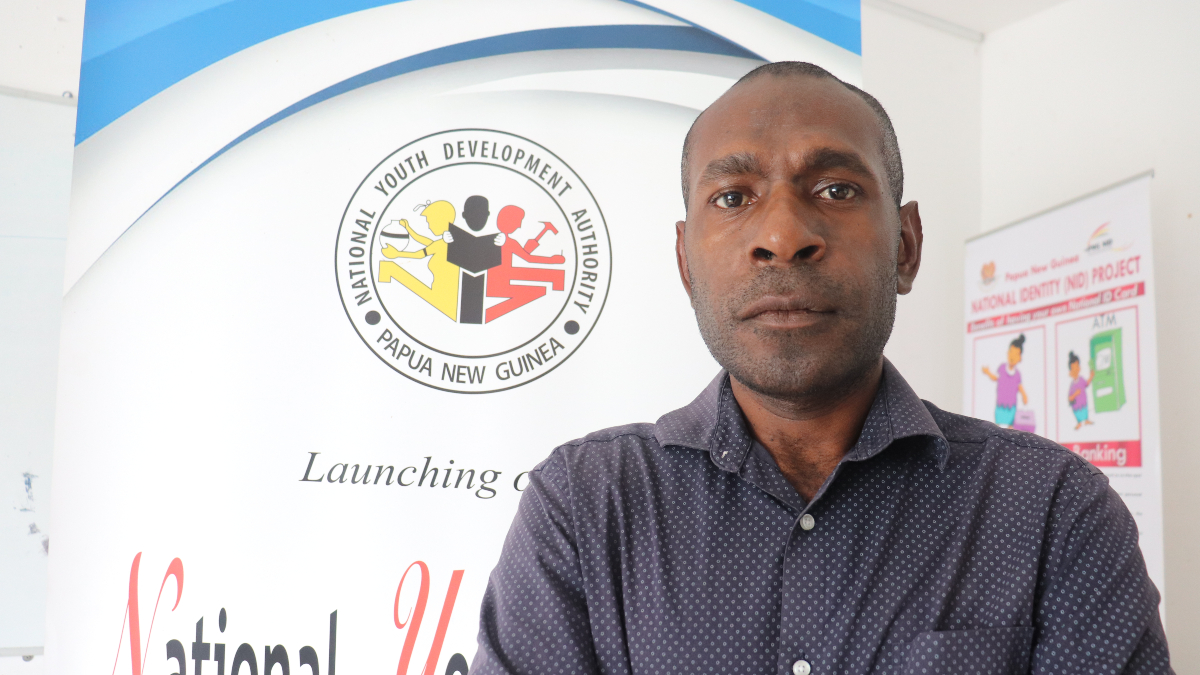By Duncan Wohwiehembe
Nestled in the heart of Madang Province, Papua New Guinea, Sumkar District is a region as breathtakingly beautiful as it is vulnerable. Spanning mainland coastal areas, the majestic volcanic Karkar Island, and the enchanting Bagabag Island, Sumkar is home to communities whose lives are intricately tied to the land and sea. For generations, these communities have thrived on fishing, agriculture, and traditional knowledge that celebrates nature’s rhythms. But today, they face an unprecedented challenge: climate change.
Rising sea levels threaten coastal settlements, saltwater intrusion jeopardizes crops, and extreme weather events erode fragile coastlines. On Karkar Island, unpredictable rain patterns and warming temperatures are beginning to alter farming cycles, placing food security at risk. The youth of Sumkar know these issues all too well, as many come from families that have experienced firsthand the devastating climate impacts. They know that action is imperative—and they are stepping up to meet the moment.
In a powerful testament to resilience, the youth of Sumkar District are joining hands with their Member of Parliament, Hon. Alexander Suguman Orme, to establish a District Youth Development Council (DYDC) in 2023. Through this council, young people are not only shaping their district’s Youth Development Plan but also laying the foundation for meaningful climate governance. The youth plan is the product of initially establishing the District Youth Council, which then allows for community planning at the local levels. Their youth-led initiatives span sustainability practices, advocacy, and adaptation projects that address the looming environmental crises threatening their homes, especially on Karkar Island.
Nowhere in Sumkar is the urgency of climate action more evident than on Karkar Island. Known for its rich volcanic soil, Karkar is a farming hub where families have cultivated cocoa and coconut for generations. However, climate change is disrupting this agricultural lifeline. As rain patterns grow more erratic, once-fertile land becomes vulnerable to erosion, and saltwater intrusion threatens the soil’s productivity. Coastal erosion is becoming a visible menace, as seawater encroaches on villages that have stood for decades.
For Karkar’s youth, this is not just a story in the news—it is their reality. As they see crops falter and families struggle to make ends meet, they recognize the pressing need to safeguard their island’s future. Through the DYDC, Karkar youth have found a platform to bring attention to these issues and devise actionable strategies. Reforestation initiatives have been one of their primary responses. Working alongside local landowners, they are planting mangroves along the coast to help prevent further erosion. In addition, they are engaging in agroforestry projects that combine fruit and nut trees with cocoa plantations, ensuring that land use is both productive and sustainable.
These youth-led projects are more than practical measures; they are acts of love and commitment to their ancestral land. The DYDC’s efforts on Karkar Island represent hope in the face of an uncertain future, an evidence to young people’s determination to protect their heritage and their homes.

As an officer at the National Youth Development Authority (NYDA), joining the Regional Youth Parliament on Climate Change (RYPCA) will allow me to better support and guide Sumkar’s youth in this journey. With insights from national and regional youth networks, I’ve been fortunate to witness and contribute to their efforts to build a future grounded in climate resilience.
Launched by UNDP in Asia and the Pacific, the Youth Empowerment in Climate Action Platform (YECAP) and partners, RYPCA provides opportunities for youth to engage in climate policy discussions, influence national and regional climate strategies, and foster meaningful action on pressing environmental issues with peers from different countries across the region. Engaging in regional platforms enables me to adapt ideas to my local context and connect Sumkar’s youth with a wider network, equipping them with tools and insights to advance their climate initiatives.
Similar to YECAP, DYDC is a platform designed to amplify youth voices and empower them to take an active role in climate governance. For many young people, this is the first opportunity they’ve had to express their concerns to local and national leaders about the existential threats facing their communities.
Crafted by DYDC, the Youth Development Plan is a blueprint that not only outlines aspirations for education, employment, and social well-being but also centres around environmental stewardship and climate resilience. This plan is a commitment to sustainability, detailing actionable steps for climate adaptation projects, from reforestation and coastal restoration to awareness campaigns in local schools and communities. In forming the DYDC, the youth of Sumkar have gained an official channel to influence policy, putting their concerns and solutions on the agenda for government action.
An essential part of the DYDC’s mission is to foster climate awareness among young people and their communities. Many residents of Sumkar, especially in remote areas, lack access to information about climate change and its impacts. The DYDC has launched outreach programs that educate people about the science of climate change and the simple actions they can take to reduce their environmental footprint. Workshops, school visits, and community events are all part of this outreach, with youth leaders sharing both scientific knowledge and traditional wisdom about environmental stewardship.
In these sessions, young people share their own experiences and concerns, creating a safe space for dialogue and inspiring others to join the fight against climate change. The DYDC understands that sustainable change requires collective action, and they are working hard to build a climate-conscious generation equipped with the knowledge and tools to protect their communities.
While the progress is inspiring, the youth of Sumkar still face significant challenges. Limited resources, inadequate infrastructure, and a lack of access to technology make it difficult to scale their efforts. Despite these hardships worsened by the climate crisis, the youth of Sumkar remain steadfast. They have a vision of a sustainable future for their district, one where they can live in harmony with nature and preserve their way of life for generations to come.
However, they cannot achieve this alone. Climate change is a global issue that requires support beyond borders. For these young climate warriors to continue their work, they need assistance from both local and international communities. This includes funding for projects, technical support for capacity-building initiatives, and platforms where they can share their stories and solutions on a larger scale.
Young people should be able to share their own experiences and concerns, creating a safe space for dialogue and inspiring others to join the fight against climate change. Sustainable change requires collective action, and we should be working together to build a climate-conscious generation equipped with the knowledge and tools to protect their communities.
The story of Sumkar’s youth is a great reminder of what is possible when young people are given a seat at the table. They are not only shaping the future of their district but also inspiring other youth across Papua New Guinea to take action. This proves that grassroots initiatives can make a real difference and that even the most vulnerable communities can build resilience in the face of climate change.
My involvement with RYPCA, representing NYDA, has given me a firsthand view of the determination and passion that young climate advocates bring to their cause. Their commitment shows us the way forward, and it is crucial that we support them by amplifying their voices and contributing to their efforts.
We can help Sumkar’s youth realize their vision of a sustainable future, ensuring that the beauty and vitality of Karkar Island, Bagabag Island, and Sumkar’s coastal communities endure for generations. These young leaders are not only fighting for their communities but also our shared planet. We need to stand with them in this urgent fight against climate change and empower them to lead the way in climate governance toward a resilient and sustainable future.




